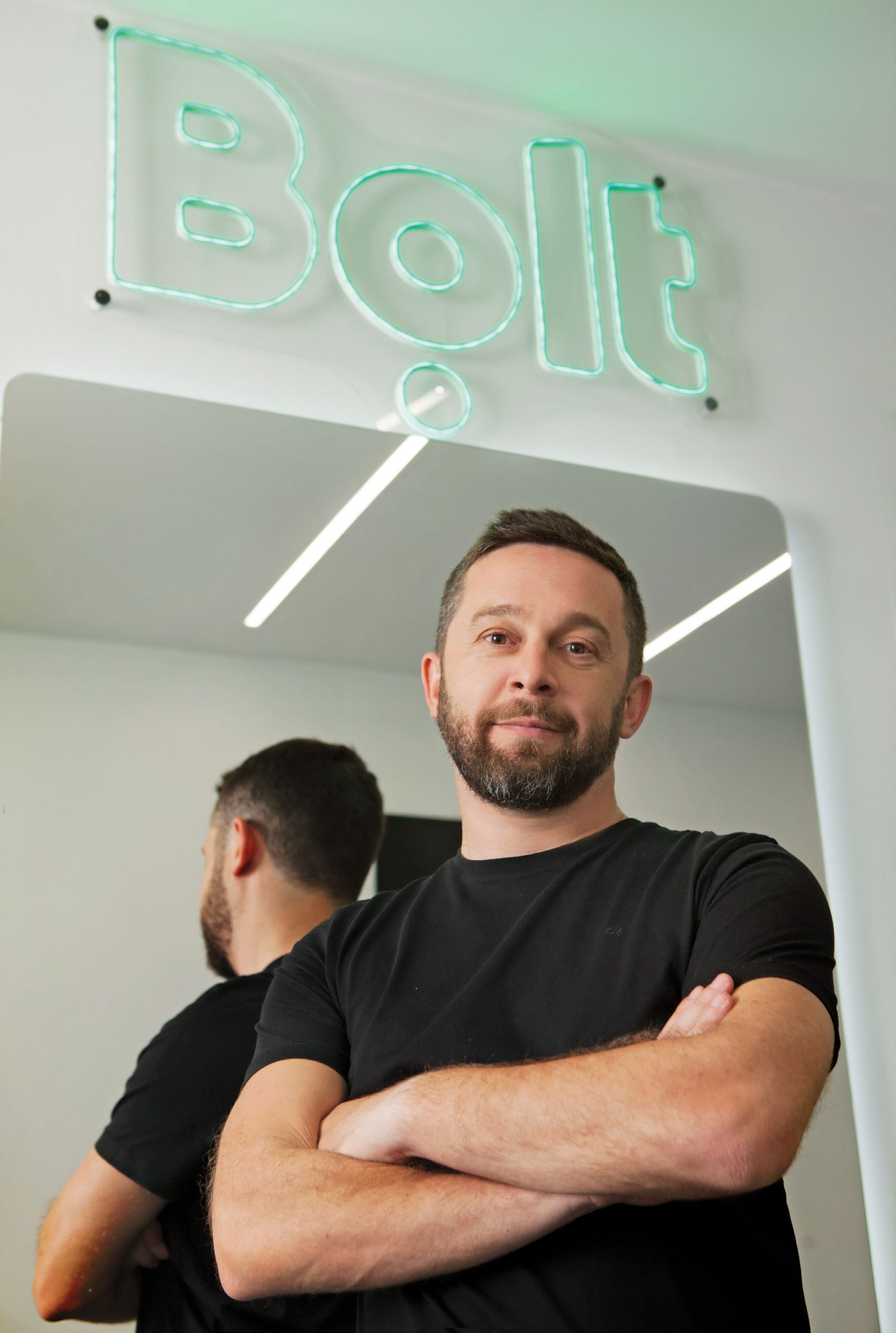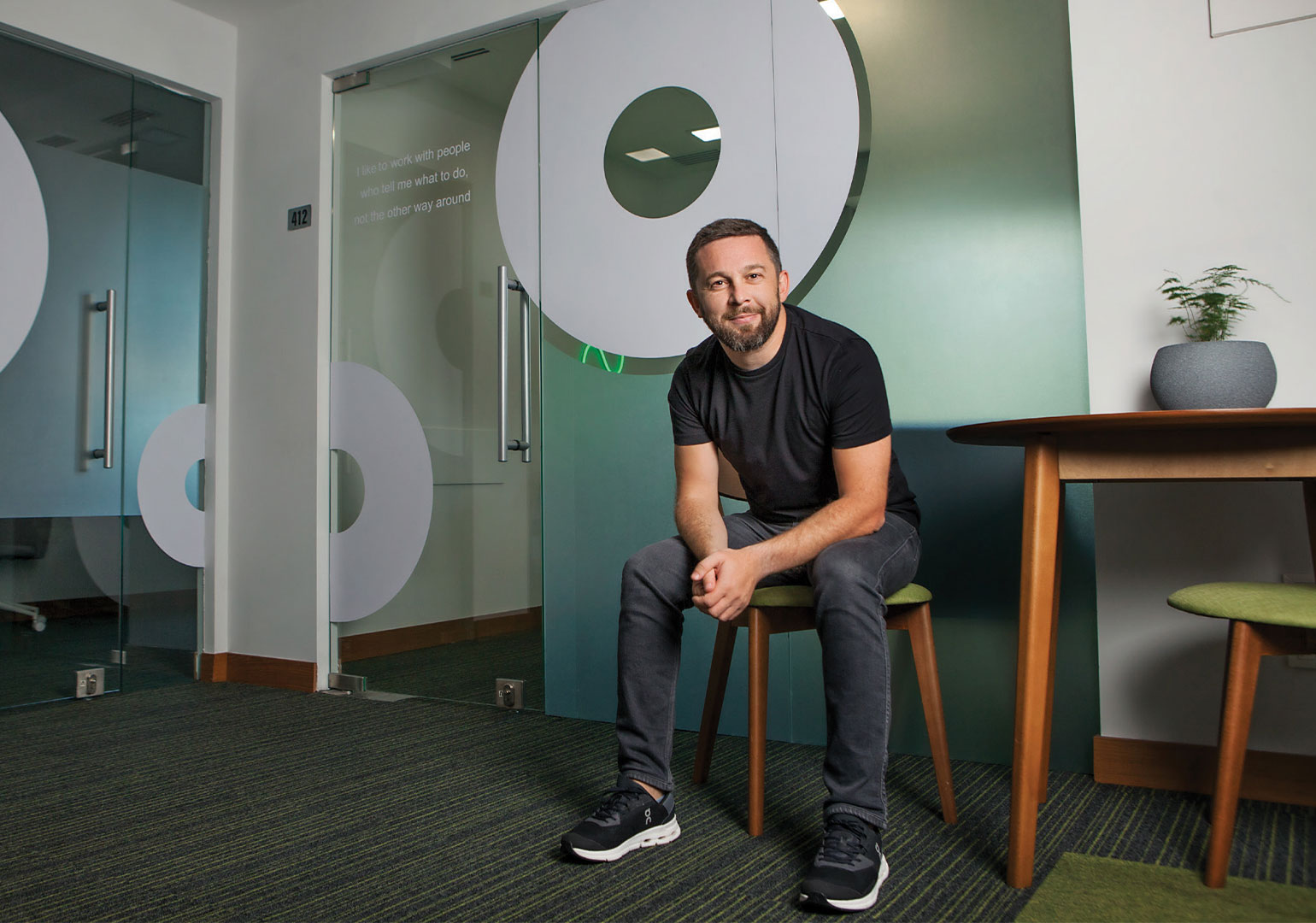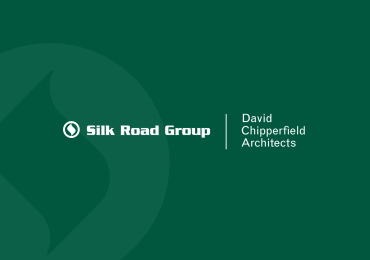The €7.6 billion Estonian tech firm Bolt is changing the mobility culture across the world. Besik Papiashvili and his team oversee the implementation of the company’s mission in Georgia.
In 2013, Besik Papiashvili teamed up with the Estonian tech startup Bolt to offer residents of Tbilisi a uniquely comfortable mobility service. Ten years later, the company’s services are accessible nationwide in 12 cities and municipalities. We spoke to co-founder and director Besik Papiashvili about the company’s experiences, achievements, and plans.
Let us start from the beginning. When did you get the idea to implement an alternative public transport and private hire service in Georgia?
It all began in 2013 when I was working at the British Embassy. Together with a colleague, I started a tech company. At that time, we worked on several projects – mainly websites and apps – but they lacked a key component: none of them addressed the real problems and needs of the consumer. These were primarily projects with an informational value rather than something that would make people’s lives more comfortable.
Around the same time, the American tech firm Uber was planning to expand globally. We thought it would be useful to implement a service of this type in Georgia. The taxi industry was in chaos, while public transport in the capital and other major cities was not operating properly.
Considering this new opportunity, we changed our initial direction and teamed up with the Estonian tech startup.
You brought Bolt to Georgia in 2014. How would you summarize your team’s activities over the past nine years?
Before bringing in Bolt, a friend of mine came on board as the third business partner. The story of Bolt Georgia began in Tbilisi, and the journey was far from easy.
As it turned out, finding and registering drivers was a difficult task. I remember asking around 20 drivers to come to my friend’s training center on a Saturday to undergo registration and training. Nobody showed up that day. However, we did not give up. We firmly believed this service would take off in Georgia as it did elsewhere. I began roaming the streets of Tbilisi, talking to drivers face to face and registering them in the system. This approach proved effective, and that is how we collected our drivers one by one.
At no point during the last nine years have we stopped growing and developing. Our team has played a vital role in overcoming numerous challenges and achieving progress.
When we first started our business, attracting talent was very difficult. There was a lack of interest and trust in what was seen as a new company. However, this did not affect us at all. Ultimately, our team members became true professionals who believed in this business and were determined to create a service that would benefit the city and help drivers receive additional income while offering passengers a high-quality service.
Our corporate culture is focused on the growth and development of our team members. The company’s operational and commercial development would be impossible to achieve otherwise. I am particularly proud of the fact that more than 80% of our current managers joined the company as junior specialists and worked their way up. We have implemented a performance management system that helps us support our team members by identifying and developing their strengths and interests. For example, if an employee is interested in developing their analytical skills, we can involve them in projects where they will be working with a team that can help them enhance the necessary skills.
Despite our operations’ success and our team’s effectiveness, finding new talent remains a problem. We try to overcome this challenge and achieve positive results with the help of technology and optimizing processes.
How saturated is the Georgian mobility market at this point?
In 2014, we had no competitors in the local market, which was more of a problem than a blessing. Drivers and customers did not know how to use our service. Very few drivers had smartphones. As a result, our opportunities for rapid expansion were limited.
Bolt was a novelty service for the customers themselves. Passengers were not used to receiving such simple digital services – for example, selecting their destination with one click. For that reason, we had many booking cancellations at the beginning.
As the market developed over time, competitors began to appear and spend their own resources on raising awareness. Market education improved, and the market itself grew.
Considering that urban migration is still a growing trend in Georgia, it is too early to talk about market saturation. As the cities grow, there is an increased demand for our services. Meeting that demand is a more significant concern for us.

How eco-friendly is your service, and what specific measures are you implementing in this area?
As I mentioned earlier, demand is constantly growing due to internal migration. Furthermore, there is additional seasonal demand from tourists. Together with the cities, we must take our share of responsibility for dealing with this issue. The average speed of travel by car in the city is decreasing each year, which means that the streets are becoming more congested. Urban mobility is affected, and people find reaching their destination quickly and comfortably difficult. Apart from the personal discomfort that comes with road congestion, there is another serious problem in the shape of the environmental factor.
Since 2022, we have installed air pollution sensors in several central locations, measuring vehicle emissions. More specifically, we are measuring NO2 (nitrogen dioxide) and O3 (ozone) levels that are directly affected by fuel combustion and vehicle emissions, respectively. The ozone concentration is particularly high in Tbilisi. On the one hand, the city is saturated with cars, and mobility is decreasing each year, while on the other hand, the concentration of toxic substances in the air is increasing. Unless we take radical measures now, we will jeopardize the future of subsequent generations.
As for the solutions, the priority should be to develop eco-friendly transport and infrastructure. We have already taken concrete steps in this regard. We were the first to introduce electric cars in our service. Unfortunately, they currently only account for 1% of the total rides, which is a very low figure compared to other Eastern European countries.
“THE MAIN RECIPE FOR THE DEVELOPMENT AND SUCCESS OF OUR COMPANY IS THE TEAM. ALL OUR RESULTS ARE ACHIEVED BY AN INCREDIBLY STRONG, AND MOTIVATED TEAM.”
Electric cars are still a luxury for most Georgian drivers. It would be good for the government to launch a subsidy programme or offer other ways of encouraging drivers to purchase and own vehicles of this type. To this end, developing the infrastructure for charging electric vehicles is also essential. It is my opinion that investing in infrastructure should be the priority.
It is also essential to modify the infrastructure to ensure every street in the city can accommodate cyclists. We can use examples from different cities in Europe on how to reduce our dependence on cars. To achieve this, we must walk and use public transport more. The government plays a vital role in facilitating this.
Technologies themselves are no less important. The development of our own technologies and systems in the last few years has allowed us to implement tech solutions that were unimaginable in the past. For example, ten years ago, passengers often had to wait a long time for a taxi, as the booking process was far from optimal and systemic flaws prevented effective dispatching. Today, drivers arrive within two to five minutes from the time of booking, and customer expectations regarding quality have increased substantially. It is now considered standard for the taxi to arrive quickly. This also has a positive effect on the city, as drivers do not have to travel far to pick up passengers. GPS and maps have been optimized, offering drivers alternative routes. Overall, these technological solutions reflect positively on the city’s environment.
Bolt also offers customers other services globally. What can we expect in Georgia in this regard?
Bolt operates in 45 countries and more than 500 cities. The company focuses on passenger transfer, but other services are also available in certain locations, including food delivery, scooter hire and car sharing. All services are initially trialed in the company’s home city of Tallinn, Estonia. Bolt operates passenger transfer and food delivery services in Georgia, and there are currently no plans for expansion. Naturally, I will not rule out the appearance of other innovative services in the future.
Do you intend to expand geographically in Georgia?
We are already represented in 11 cities and municipalities across Georgia, including seasonal resorts such as Bakuriani and Gudauri. At this point, there are no plans for further geographical expansion.
What are the company’s plans in Georgia?
We plan to continue growing and creating more opportunities for our drivers while offering customers an even more reliable, comfortable, and flexible service.
Another priority is to develop Bolt Business – a product created specifically for companies, aiming to enable more effective cost control for the client. This service is already used by around 2,000 companies in Tbilisi, Batumi, and Kutaisi. However, we believe that there is room for further development.
Finally, what is the driving force behind Bolt’s success?
The team is the main recipe for our development and success. All our results have been achieved by an incredibly strong and highly motivated team that consistently seeks to grow. Nothing is more encouraging for me than having these people by my side, working on our mission to transform the mobility culture of Georgia.
Photo Credits to Khatuna Khutsishvili / Forbes Georgia

















